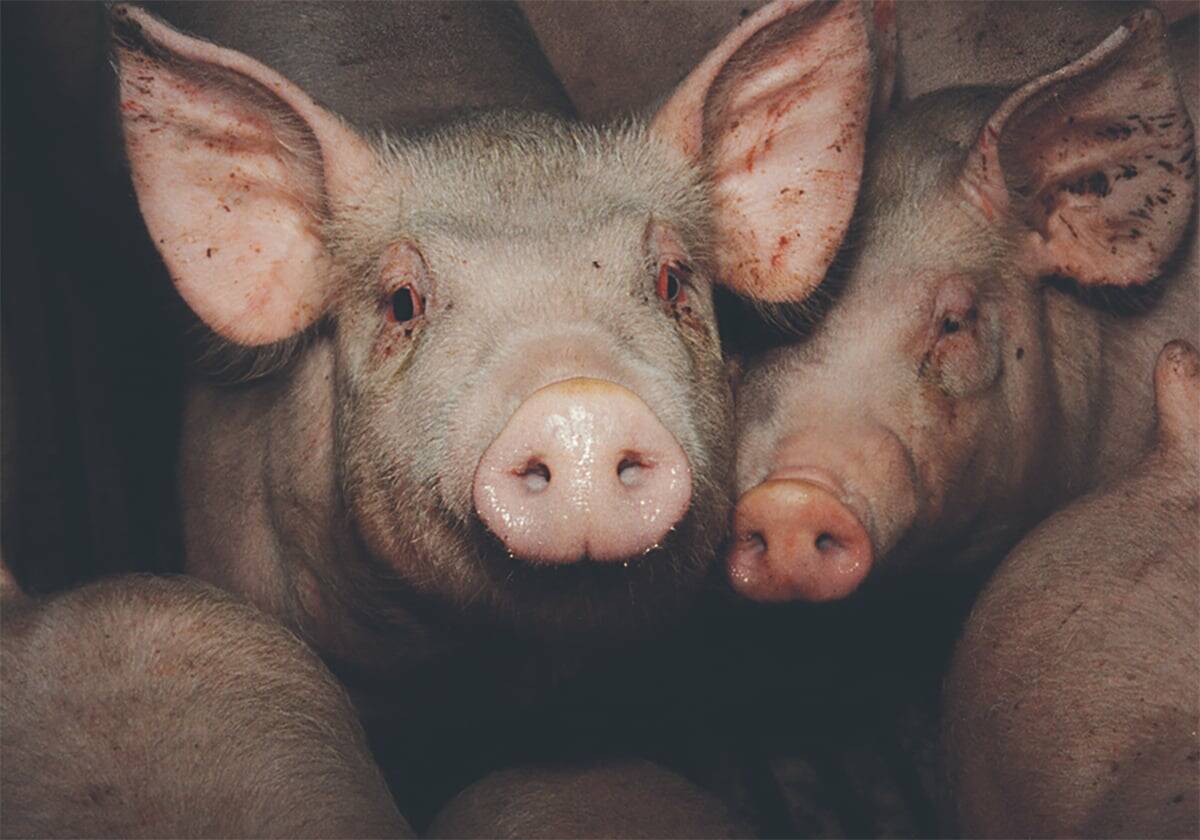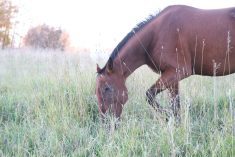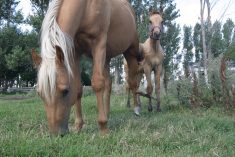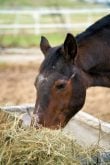Magnesium is an essential macro-mineral that plays a crucial role in the health and wellbeing of horses. It is essential for more than 350 biochemical processes in the body of the horse, including generation of cellular energy and decoding genetic information.
Understanding the importance of magnesium at the cellular level and its impact on health issues can help prevent deficiency and its associated symptoms.
Magnesium is vital for muscle function and, when the horse isn’t getting enough, muscles cannot fully and properly relax. They remain perpetually stressed. Magnesium is also essential for nerve transmission and plays a protective role against excessive excitation.
Read Also

Scientists discover cause of pig ear necrosis
After years of research, a University of Saskatchewan research team has discovered new information about pig ear necrosis and how to control it.
Each horse has a unique requirement for magnesium, depending upon diet, environment and lifestyle. Stressors, such as dietary indiscretions and physical, mental or emotional stress can significantly alter the body’s demand for magnesium as it attempts to maintain balance.
The individual horse may show multiple signs of magnesium deficiency, which may appear continuously or only during times of stress or competition.
Horses can present with an inability to relax physically or mentally. They may exhibit signs of increased or sustained muscular tension with taut top lines, croups and hindquarters. They may develop tremors, flinching and body trembling, especially associated with exertion. They may grind their teeth due to generalized body soreness.
Horses with neurological issues associated with magnesium deficiency may shy or spook, be irritable, inconsistent in their behaviour, overly sensitive to sound, touch and grooming and have difficulty focusing on learning tasks.
Horses with low magnesium often have symptoms despite a properly fitted saddle and sensible conditioning and training. They respond poorly to chiropractic adjustments, massage and various bodywork, with re-occurrence of the tension and soreness within days of treatment.
Stress, inappropriate training, travel, changing herd environments, extreme heat or cold, injury and competition can cause individual horses to assimilate a tremendous amount of magnesium. If not addressed properly, performance horses can become increasingly deficient, leading to a sour attitude, generalized body soreness and poor performance and recovery.
Mares who are deficient in magnesium may display pronounced irritability with marked pain over the loins during their estrus cycle. Magnesium is critical to support timely hormonal cascades, ovulation and smooth muscle activity in the reproductive tract.
Many interventions are placed upon the mare to suppress or prevent the “inconvenient” estrus cycle, yet magnesium levels are rarely addressed as an underlying cause for discomfort and silliness.
Studies show that 56 molecules of magnesium are required to metabolize each molecule of sugar consumed by humans. It is likely that a similar ratio applies for horses. Thus, those horses consuming diets high in sugar-rich grasses or carbohydrate-rich feed may require a tremendous amount of magnesium to process those sugars and starches.
Magnesium is necessary to create proper insulin behaviour at the cell membrane. Both magnesium and insulin are necessary to drive glucose inside the cell. Insufficient magnesium increases the tissues’ susceptibility to blood sugar disorders, insulin resistance, laminitis and poor hoof quality.
It has been observed that horses displaying external signs of insulin resistance, such as a cresty neck and the accumulation of localized fat pads, respond positively within weeks of magnesium supplementation. Improvement to hoof structure and function generally follows within several months.
The functional health of the horse’s gut is closely related to the availability of magnesium as well. Its lack has been linked to gastric ulceration and other digestive issues. High-fat diets and supplements meant to soothe stomach acid can actually hinder magnesium absorption. Additionally, when horses are medicated with proton pump inhibitors to manage stomach ulcers, their bodies will alter how magnesium adsorption is handled.
If a horse’s daily magnesium needs are not met, this can lead to a gradually increasing deficit in the body over time.
Unraveling the contribution magnesium plays in the expression of symptoms is complicated by the lack of a reliable blood test for magnesium. It is estimated that only one per cent of the body’s magnesium exists in the blood serum, and this one per cent is carefully controlled within a specific range. Thus, values for magnesium levels in a serum test are rarely indicative of an animal’s true magnesium status.
Since deficiencies in horses can present in a variety of ways and specific diagnostic tests are not available, a sensible approach to address the sub-clinical signs is prudent use of magnesium supplementation. Magnesium supplementation may have a dramatic calming effect on horses, working on multiple muscular and neurological levels to balance the animal’s system and offset any deficiency.
When selecting a magnesium supplement, it’s important to consider the levels of magnesium in the product and how well it can be absorbed. Closely monitor the horse’s response. Magnesium is considered generally safe to supplement, but early signs of stool loosening and diarrhea are a good indication of its upper limit.
















